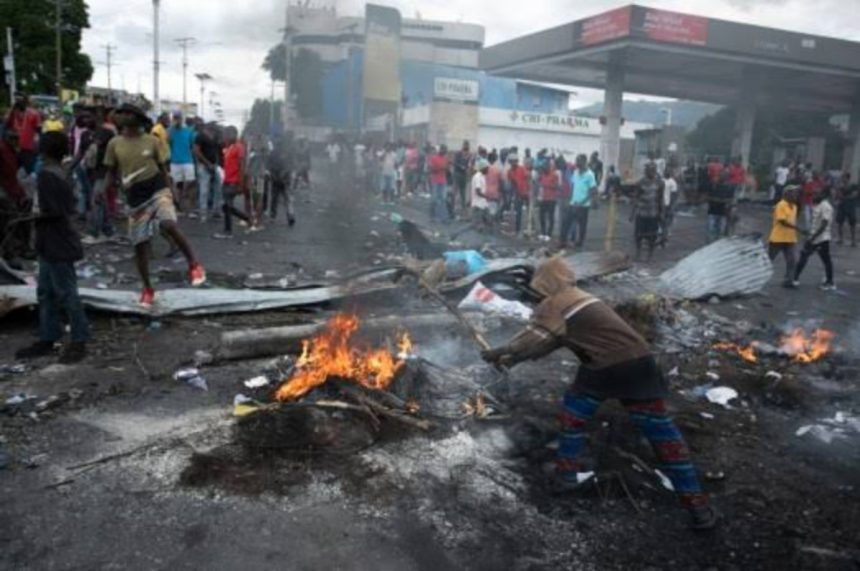Haiti’s principal port has been shut down as of Thursday due to deliberate acts of destruction, following a surge in gang violence that has thrown the nation into disarray and prevented the prime minister from returning home.
Last week, heavily armed gangs initiated a series of attacks, aiming at vital infrastructure such as the airport and police stations, and orchestrating jailbreaks, all while calling for the resignation of Prime Minister Ariel Henry.
Caribbean Port Services, the exclusive operator of the port in Haiti’s capital, Port-au-Prince, suspended operations citing intentional sabotage and damage.
The Haitian government has prolonged the state of emergency for an additional month across the western region, including the capital, an area largely under gang control.
The United Nations’ humanitarian agency has issued a warning that the healthcare system is on the brink of failure, with numerous facilities shutting down or scaling back, amid a critical shortage of medicines and personnel.
The agency has urged for a cessation of hostilities to facilitate the delivery of humanitarian aid and highlighted the dire need for resources to treat those injured by gunfire, including blood, beds, and medical staff.
On Wednesday evening, gangs targeted a police station in the Bas-Peu-de-Chose neighborhood of the capital, setting it ablaze. The officers managed to evacuate before the onslaught, which also resulted in the destruction of several police vehicles, as reported by Haiti’s police union, Synapoha.
The gangs launched their offensive last week while Prime Minister Henry was overseas, starting with attacks on two prisons that led to the escape of most inmates.
According to Synapoha, ten police stations have been razed, and an estimated 15,000 individuals have fled the most affected areas of Port-au-Prince.
The UN Security Council convened in New York on Wednesday to deliberate on the grave situation, while the United States has implored Prime Minister Henry to take decisive action to address the crisis.
Gang leader Jimmy “Barbecue” Cherizier has threatened a civil war and widespread violence if Henry does not step down.
In addition to the state of emergency, a nighttime curfew has been imposed in the capital in an attempt to restore peace, despite the gangs often possessing superior firepower compared to the security forces.
Henry, who has been in office since the assassination of President Jovenel Moise in 2021, was expected to resign in February but instead entered into a power-sharing agreement with the opposition pending new elections.
Amid the recent turmoil, Henry was in Kenya discussing a UN-endorsed international police mission to bring stability to Haiti.
He has yet to make a statement regarding the escalation of unrest and was last reported to be in the US territory of Puerto Rico.
The UN’s human rights chief, Volker Turk, described the violence as “beyond untenable,” with gangs responsible for 1,193 deaths across Haiti this year.
The United States has called for Henry to facilitate a political transition and ensure fair elections, clarifying that it is not demanding his resignation, contrary to the gangs’ ultimatum.
Haiti, the poorest country in the Western hemisphere, has faced prolonged instability, and the assassination of Moise has only deepened the crisis.
Since 2016, no elections have been conducted, leaving the presidency unoccupied.





